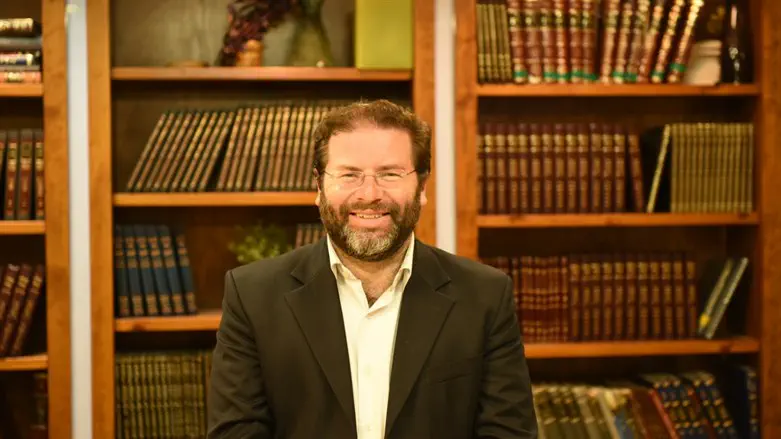
The unity of the Jewish-nationalist camp in the face of the split in the Arab parties (which may turn out to be a game-changer in the upcoming elections) is much more significant than just politics. The unending media spin is that the circuitousness of the elections is because the Israeli public is irreparably divided, and therefore the only way out of the mess is by giving up the basic values of the Jewish state (they launder this with the words "statehood and responsibility").
The truth is much simpler: among Israel's Jewish public there is a clear and absolute majority in favor of national and traditional identity, the whirlpool is due to the introduction of the Arab public into the equation. Now it becomes clear that this is not a cohesive public but a collection of various ethnic clans at odds within themselves (incidentally, the division in the lie known as the "Palestinian people" is much broader).
The verses in the Torah reading of Nitzavim which we read just this past Shabbat ‘You are standing’ are quite clear: "You are standing today, all of you, before the Lord your God... every man of Israel [, your children, your wives]… to enter into the covenant of the Lord".
In order to make a covenant with God, it is necessary that everyone of Israel be here, the Torah says. What is the definition of "everyone"? The verses continue: "…with he who is here with us standing today before the Lord our God and with he who is not here with us today". In other words, the definition of "Israeli unity" is not necessarily the consent of all citizens of the state in a particular generation, but the measure of the connection to the eternal Jewish ethos and tradition. For this, thank God, there is a clear majority that is only growing.
This is the covenant that we are going to enter into with the Lord at the beginning of the New Year
The Fast of Gedaliah, a day after Rosh Hashanah, is seemingly unrelated to the Ten Days of Repentance and only by coincidence falls on the third of Tishrei.
Because of this, the message that tends to be attributed half-jokingly to the fast is that "here’s the chance to lose weight after the holiday". This is, of course, correct, but there is a deeper message:
The murder of Gedaliah ben Achikam was in fact the actual end of the destruction of the First Temple. After the burning of the Temple, a depleted remnant of the Jewish people remained in the Land of Israel; the punishment that followed the murder uprooted the last of the Jews from the Land of Israel, and finalized the exile.
A deeper look reveals that it was precisely this tragic event that caused growth. Until then, the Jews had toyed with the idea that the destruction was not final and thus did not gather up the strength for a renewed return. It was precisely the realization that the First Temple era had ended that allowed Zerubavel and his people to immigrate to the Land of Israel several generations later and begin to establish the Second Temple.
The realization that must be internalized after Rosh Hashanah 5783, is that the era of the year of 5782 has ended. This is a bit sad since there were good things that happened in our lives in the past year, and therefore we fast; but it is precisely from this that we grow. We are facing the year 5783 [2022-2023]. The year 5782 will not return, but we will fast on the fast of Gedaliah ben Achikam, and we will know that there is symbolism in his very name: "Gedal-Yah" - literally, the Lord is raising [us] up and "Achi-kam" - literally, our brother rises, meaning that He is giving our brothers and our sisters and ourselves the strength to get up for the year 5783.
Have a meaningful fast and a good year!
The bad will pass.
The good will prevail.
With God's help.